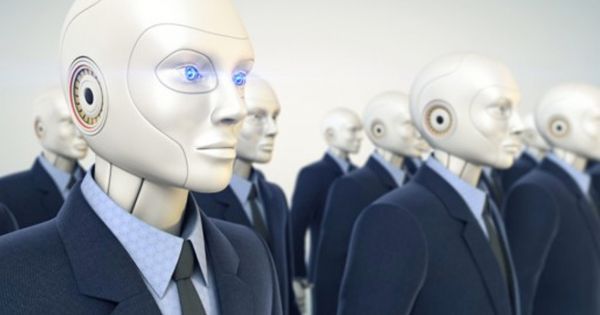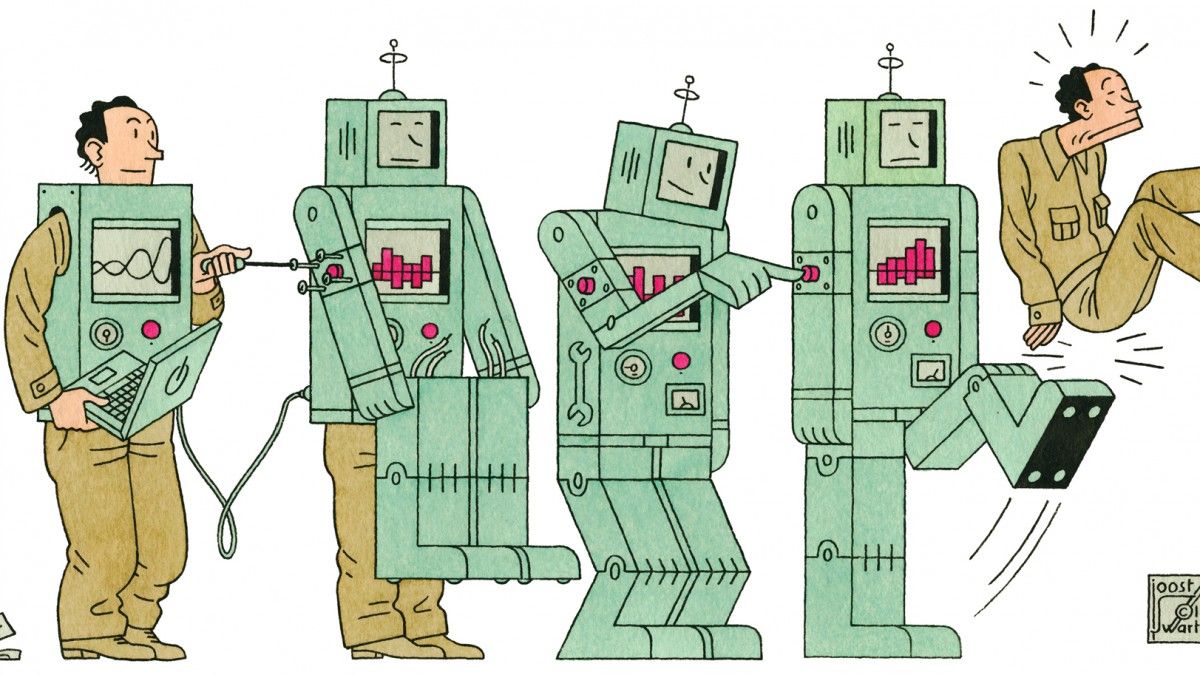Robots will eventually do all our jobs, but we need to start planning to avert social collapse.



And, we all have heard all of the horrorr stories of a botch surgery or treatment performed by a MD who was a fraud. Well, our friends on the Dark Web are at work again in supplying anyone willing to pay fake diplomas & certifications. The challenge is how do companies and agencies validate? Something to ponder as we all know hackers can also forge educational records as well.
Criminals on the Dark Web (a lawless, unregulated part of the Internet) are supplying fake diplomas and employment certifications to anyone with a few hundred bucks.
According to Israeli threat intelligence firm Sixgill, people are even hiring hackers to penetrate university computer systems to alter grades.
The company has pinpointed multiple vendors selling degrees and accreditation that can easily be mistaken for being legitimate, so the market for fraudulent documents is booming.

A new report asserts that, by 2025, jobs from the customer service, trucking, and taxi industries will be taken over by cognitive technologies. Yet, we will begin to truly feel the impact of this in just 5 years.
A report that was released by Forrester last month predicts that cognitive technologies will take over some 7% of jobs in the United States in less than a decade (by 2025). Notably, the report asserts that the trend will make itself felt five years from now.
“By 2021, a disruptive tidal wave will begin. Solutions powered by AI/cognitive technology will displace jobs, with the biggest impact felt in transportation, logistics, customer service, and consumer services,” says Forrester VP Brian Hopkins. Forrester estimates around 6% of jobs will be eliminated by as early as 2021.

Over the course of the next year, Finland is putting Universal Basic Income to the test. Thousands of individuals are going to be getting a basic income to trial (what could be) the economics of the future.
The views and opinions expressed are solely those of the author. They do not necessarily represent the views of Futurism or its affiliates.
Finland is about to launch an experiment in which a randomly selected group of 2,000–3,000 citizens already on unemployment benefits will begin to receive a monthly basic income of 560 euros (approx. $600). That basic income will replace their existing benefits. The amount is the same as the current guaranteed minimum level of Finnish social security support. The pilot study, running for two years in 2017–2018, aims to assess whether basic income can help reduce poverty, social exclusion, and bureaucracy, while increasing the employment rate.

Singularity: The technological singularity (also, simply, the singularity) is the hypothesis that the invention of artificial superintelligence will abruptly trigger runaway technological growth, resulting in unfathomable changes to human civilization.
Have you ever taken a look at the constantly accelerating world of technology and thought “what happens if these machines become more intelligent than us? Will they develop conscious thoughts and decide that we are inferior and wipe us out? Will they become our bff’s for being their creators? How come our jobs are rapidly being replaced by machines? What will be the role of humans if we are no longer the most intelligent beings? Is this at all even possible?”
I find these ideas interesting to think about and I think the notion of singularity is a possibility that should at least be considered. In this article I’m going to outline a few of the issues surrounding intelligent machines and advanced AI. As well as give some of my personal opinions about the topic.

The odds that artificial intelligence will enslave or eliminate humankind within the next decade or so are thankfully slim. So concludes a major report from Stanford University on the social and economic implications of artificial intelligence.
At the same time, however, the report concludes that AI looks certain to upend huge aspects of everyday life, from employment and education to transportation and entertainment. More than 20 leaders in the fields of AI, computer science, and robotics coauthored the report. The analysis is significant because the public alarm over the impact of AI threatens to shape public policy and corporate decisions.
It predicts that automated trucks, flying vehicles, and personal robots will be commonplace by 2030, but cautions that remaining technical obstacles will limit such technologies to certain niches. It also warns that the social and ethical implications of advances in AI, such as the potential for unemployment in certain areas and likely erosions of privacy driven by new forms of surveillance and data mining, will need to be open to discussion and debate.



Americans believe in the importance of a good day’s work. And so it’s understandable that the prospect of a universal basic income (UBI), in which the government would issue checks to cover the basic costs of living, rubs some people the wrong way. Writing in The Week in 2014, Pascal-Emmanuel Gobry envisions a UBI dystopia in which “millions of people” are “listing away in socially destructive idleness,” with “the consequences of this lost productivity reverberating throughout the society in lower growth and, probably, lower employment.”
This is a reasonable concern. After all, the most successful anti-poverty programs in the US thus far, such as the Earned Income Tax Credit, have been carefully designed to promote work –not enable people to avoid it. But based on the evidence we have so far, there’s little reason to believe that a UBI would lead people to abandon work in droves. And even if some people did indeed opt to give up their day jobs, society might wind up reaping untold rewards from their free time in the long run.
Back in the 1960s and 1970s, the US and Canada were seriously considering the possibility of instating a UBI. During that time, the US government commissioned a series of experiments across six states to study the effects of guaranteed income, particularly its effects on work. The Canadian government introduced a similar experiment in the town of Dauphin.

In the US during the early 2000s there was an old political term for low skilled jobs, politicians called these jobs “the jobs that no one in America wanted.” Well, we now can start seeing the slogan by politicians as “the jobs that Robots can do for free.”
The focus of automation in farming has shifted from assisting humans to replacing them.
The average age of Japanese farmers is 67. Across all developed countries, the average age of growers is 60. Robotics and automation technologies are just now reaching the stage where agricultural robots can replace human farmers for many or most crop growing tasks.